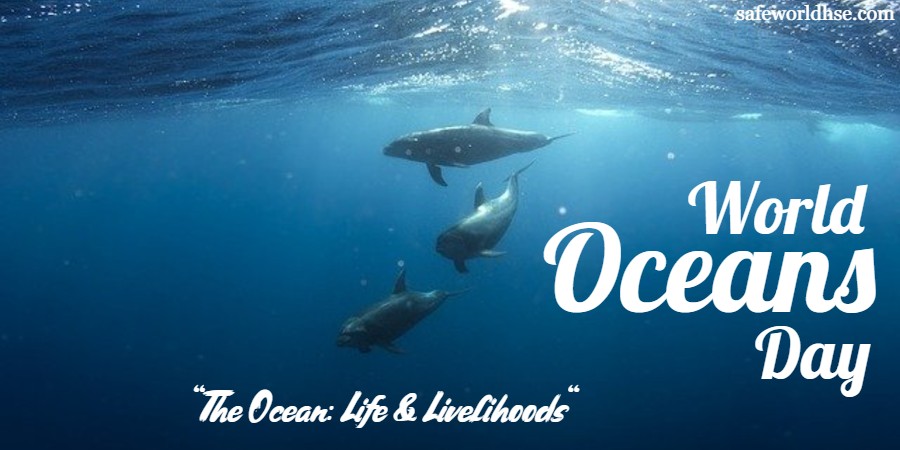The future of the planet is increasingly uncertain. Climate change, pollution, overfishing, and other environmental issues all threaten to reduce the planet’s ability to support humans and wildlife alike. One way people can help is by influencing policy at a local level. The World Ocean Day Summit – A focal point for ocean conservation will take place from June 9-10 in Busan, South Korea. It aims to bring together decision-making bodies from around the world to discuss the most pressing global issues facing oceans today and shape a new course for ocean conservation in the coming decades.
What is World Ocean Day?
Ocean Day is an annual event to raise awareness of the state of the world’s oceans and the threats posed to them by humans. The event was first celebrated on June 11, 1986, in Miami, Florida, as a way to draw attention to ocean pollution and overfishing. Since then, it has grown into an international event where decision-making bodies from around the world meet to discuss ocean issues.
How does World Ocean Day work?
On World Ocean Day, people around the world are encouraged to take a moment and reflect on the state of their planet. There are a number of ways this can happen. One way is to raise funds to support ocean protection and conservation. Another way is to take the time to learn about and become aware of the issues facing our oceans and the people who live in them. Time can be spent learning about the threats to the ocean and the ways in which people can work together to protect it.
National Best Friends Day 2022
These include: –
- Commemorating the 30th anniversary of the first United Nations Conference on the Environment and Development in Nairobi, Kenya.
- Establishing the United Nations Environment Programme (UNEP) as the intergovernmental body responsible for the annual World Ocean Day celebrations.
- Amending the United Nations Convention on the Law of the Sea ( UNCLOS) to include the environmentally and socio-economically valuable coastal areas of the Great Lakes region as part of the hemispheric Exclusive Economic Zone (EEZ).
- Adding a link to the ocean in the Constitutions of the United States and Canada to acknowledge Canada’s large marine environment as part of its continuous jurisdiction over the North American continent.
- Lifting the ban on aquatic organisms advertised as ‘new products at food and beverage outlets.
- Increasing the amount of fishing allowed per year in the world’s oceans from 50 to 100 tons.
- Establishing a task force to research and develop a new marine protected area (MPA) around the Great Lakes.
- Increasing the amount of the financial assistance provided by Canada to the countries of the SouthernSmart initiative from $100 million to $125 million over five years.
The importance of preserving habitats for species at risk
New and threatened species are amongst the most at risk from the effects of climate change. Habitats for these species need to be protected as much as possible to save these species from becoming extinct. Protecting species at risk from extinction can protect the environment and human health by reducing the amount of pollution and reducing the need for abiotic oil and gas resources to be extracted from these areas.
A reform of the U.S. marine protected area system
Dams need to be modified to reduce projected and other threats to aquatic biodiversity. Areas with endangered species need to be protected from overdevelopment and changes to the hydrological cycle.
The future of coral reefs and fisheries in the South China Sea
This is a sensitive region where several countries are competing for influence in the Asia-Pacific. The weakening of coral reefs and fisheries due to changing climate patterns is a major issue and could have serious implications for the South China Sea economy.
What are the issues at stake for oceans today?
Overfishing – Tagging of wild species for market products is a major threat to many marine species. Overfishing is a concern for many species including the global recruitment of fishes, which means a decline in the number of young fish being caught each year.
Pollution – Pollution of the world’s oceans is a major threat to biodiversity and sustainable water use. This can be seen in the reduction in fish stocks and the destruction of coral reefs and aquatic ecosystems.

Why is this summit of importance?
This is the first high-level meeting of its kind following the adoption of the UNCLOS+ amendment in 2011. The meeting is of importance for several reasons: The adoption of the amendment that established the Inter-American Tropical Trench in the Western Hemisphere as an 8- Nations marine protected area. The initiative of the international community to protect the Western Hemisphere’s most biologically significant region. The meeting will be held in Busan, South Korea.
The importance of action on climate change
The role of the oceans in global climate change is well-documented. The amount of ocean water present in the atmosphere is directly related to the amount of carbon dioxide (CO2) in the atmosphere. CO2 levels in the atmosphere determine the oceans’ ability to provide essential water and energy to life on Earth.
How can we protect our oceans in the future?
Ocean protection can be done in many ways. The most obvious way is to protect areas of the ocean that are especially important for humans – such as the coastal zones or protected seas. There are also a number of ways that people can help protect other ecosystems, such as reducing pollution, maintaining biodiversity, and restoring degraded areas.
How To Get A Car Loan in Just Minutes!
Financing section
This area is intended to give more detailed information on financing options for ocean protection. The most important consideration when deciding how to finance ocean protection is the amount of the investment – how much is likely to generate a return on the investment over the long term. There are a number of financing options that can be used, including bonds, equity, cash, and donations. Bonds are generally short-term in nature, while equity financing allows investors to take some ownership in a company that is working to protect the environment.
Conclusion
A key question that faces all humanity is how to protect our planet for future generations. One way of doing this is to have a think about what is happening to our Oceans today and how we can prevent similar problems from happening in the future. This can be done by changing our lifestyles in ways that protect our Oceans today and help to save them for future generations. The value of Oceans is incalculable. They provide economic, cultural, and biological value to all of us.
Hope you like the article. For any kind of information follow me on Hinglishblog.




